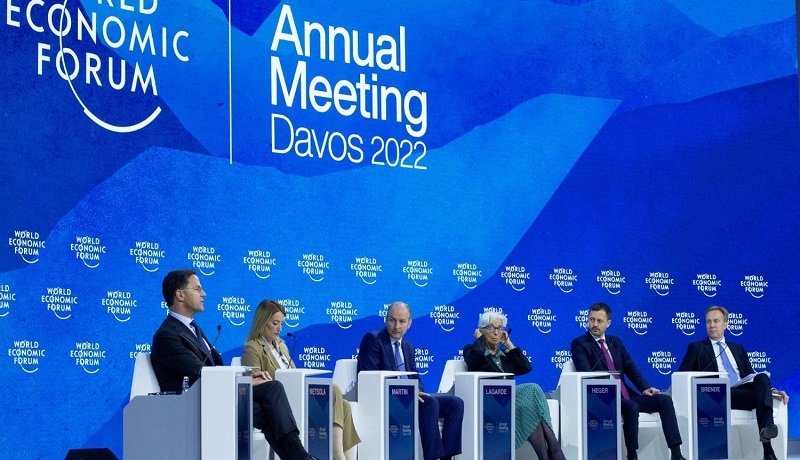Nevertheless, Russia’s military invasion of Ukraine showed that these dangers were still serious; So that they were in the center of attention of the World Economic Forum. The world was reeling from the consequences of the Covid-19 epidemic crisis when Russia invaded Ukraine, raising two serious concerns about the possibility of World War III and a severe shortage of grain.
However, for Europe, the supply of energy resources, especially gas, is another serious concern. As a result, most of the discussion at the Davos forum focused on the roots of these crises, and important parts of the speeches of Henry Kissinger and George Soros on controlling Russia or ending the current crisis were considered.
Prior to the meeting, there were serious concerns about non-cooperation in resolving global problems, and statistics on rising food prices around the world exacerbated this concern. In addition, the dependence of nearly 40 countries on wheat imports from Russia and Ukraine was another factor in Davos’ special attention to the famine.
On May 23, the first day of the meeting, one of the main topics was that the consequences of Covid-19, climate change, and the Ukraine war, together, have led to sharp increases in food and energy prices. This increase is to the extent that some grain-dependent food products have risen in price by nearly 50 percent globally, on average.
The participants in the meeting on the food crisis focused on the causes of the crisis and stressed that a holistic approach is needed to help ensure food security and revitalize the global supply chain and maintain trade flows in countries. In this holistic approach, issues such as reducing emissions (one of the causes of the food crisis) by accelerating digital transformation should also be on the agenda, and countries should work together to revive the food supply chain. In addition, assistance in financing this supply chain should be provided.
A spokesman for the Republic of Tanzania at the meeting cited aid to Africa as one of the cornerstones of such an approach, which would help to increase food crops on the continent in a socially inclusive manner.
In this regard, two strategies were proposed that should be pursued: one is national measures to invest in African infrastructure such as rural roads; And the continental-level strategy of having a young population, and this young population should be involved in the agricultural value chain. In addition to these two strategies, increasing seed diversity, soil fertility and water supply were also among the issues that were emphasized.
Other participants in the meeting also believed that some countries in a better position have more responsibilities and should facilitate the flow of food. As a result, emphasis was placed on partnership and cooperation at the international level to solve global problems in an efficient and sustainable manner.
Another highlight of the talks was the issue of food waste, and the need for technological innovation to process food and reduce food waste was highlighted. An approach that is complemented by the commitment of countries and the use of science and the creation of a global system for food and investment centers to accelerate innovation in this area.
However, the Executive Director of the UN Food Program spoke of the high volume of previous aid to Africa (and other regions) and the inefficiency in managing and allocating it, and did not consider mere financial assistance to be effective.
Another important point in these talks was the need for cooperation between companies and farmers and support for farmers in terms of technique and innovation in order to increase efficiency and improve the quality of the final product, which must be done sustainably; The government and industry must work together to do this, and the NGOs must also work together. In fact, an important point that was repeatedly raised and emphasized during the talks was the importance of international cooperation, which was also discussed before the meeting.










0 Comments